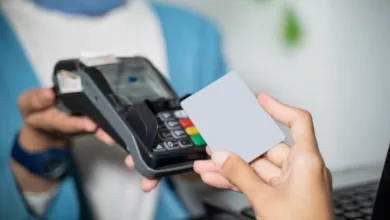Web3 and Beyond: Crypto Wallets Leading the Way

Web3 and Beyond: Crypto Wallets Leading the Way
Web3 is a decentralized internet built on blockchain technology that envisions a digital world where users control their data, own their assets, and interact directly with services without intermediaries. Crypto wallets are at the heart of this ecosystem, which has evolved from basic storage solutions to empowering tools that unlock Web3’s true potential. With the help of a cryptocurrency wallet development company, you can create a secure, user-friendly, and feature-rich crypto wallet that suits your needs and preferences. Well, through this blog delve deep into Web3 and understand how crypto wallets are leading the way in the Web3 revolution.
Understanding Web3 and its Core Values
Web3, the next generation of the internet, is built on the idea of decentralization, which means no single entity or intermediary can dictate the rules or censor the content of the web. This gives users more control and ownership over their online experience as they can interact directly with each other and with decentralized applications (DApps) that run on peer-to-peer networks.
The core value of Web3 is user ownership, which gives users the power to handle and operate their data and assets, instead of trading them to third parties for free or low-cost services. User ownership also helps users gain from the value they create and contribute to the web, rather than being exploited or manipulated by centralized platforms.
Web3 also values innovation, which leads to a more open and cooperative environment for developing and accessing new and better services and features. It also supports experimentation and variety, as users can pick from various DApps and networks that fit their needs and preferences.
One of the most exciting and impactful aspects of Web3 is cryptocurrency development, which enables users to create and use digital currencies that are secure, transparent, and decentralized. Cryptocurrencies are not controlled by any central authority or intermediary but by the collective agreement of the network participants. Cryptocurrencies can be used for various purposes, such as payments, remittances, donations, rewards, and more. They can also represent different values, such as utility, governance, or equity.
The main technologies behind Web3 are blockchain and DLT, which are systems that store and process data in a distributed and fixed way. Blockchain and DLT allow users to create and exchange digital assets such as cryptocurrencies, tokens, and NFTs, that are part of the Web3 ecosystem. They also make smart contracts possible, which are agreements that run by themselves and allow transactions and interactions on the web without the need for trust or intermediaries.
The Rise of Crypto Wallets: From Storage to Utility
The software or hardware devices that allow users to store and manage their digital assets like cryptocurrencies, tokens, and NFTs are known as crypto wallets. These crypto wallets were created as a way to store cryptocurrencies like Bitcoin, which are based on blockchain technology. Blockchain is a system that records and verifies transactions in a distributed and immutable way, without needing a central authority or intermediary.
However, crypto wallets have evolved beyond being simple storage tools, and now present a range of functionalities that improve the user experience and utility of the Web3 ecosystem.
Some of the features that crypto wallets provide are:
Multi-currency support:
Multiple types of digital assets, such as cryptocurrencies, tokens, and NFTs, that are native to different blockchains or networks are supported by crypto wallets. This lets users not only access and manage many assets from a single interface but also switch between them easily.
Built-in exchange:
Crypto wallets can integrate with decentralized exchanges (DEXs), which are platforms that allow users to trade digital assets without intermediaries or fees. This lets users exchange their assets quickly and securely, without leaving their wallets.
DeFi integration: By connecting to DeFi applications, which are DApps that offer financial services without any middlemen or rules, crypto wallets allow users to join and benefit from different DeFi options, such as getting interest, taking loans, or adding liquidity, from their wallets.
NFT management:
Crypto wallets can support NFTs, which are unique and indivisible digital assets that represent ownership of digital or physical items, such as art, music, games, or collectibles. This allows users to create, buy, sell, and display their NFTs from their wallets, and to enjoy the benefits of digital ownership and scarcity.
There are different types of crypto wallets, such as hot, cold, and hardware wallets, that vary in terms of security, accessibility, and convenience. Hot wallets are online wallets that are connected to the internet, and are easy to use and access, but are more vulnerable to hacking or theft. Cold wallets are offline wallets that are not connected to the internet, and are more secure and reliable, but are less convenient and accessible. Hardware wallets are physical devices that store the private keys of the user’s assets, and are secure and portable, but can be lost or damaged. Users can choose the type of wallet that suits their needs and preferences, or use a combination of them for optimal security and functionality.
Crypto Wallets Leading the Way in Web3
Crypto wallets are key tools for enabling the Web3 experience, which is the vision of an internet that is decentralized, open, and user-focused, where users can interact and access various applications without any middlemen, censorship, or spying. These wallets provide users with the following advantages:
Identity Management
By using crypto wallets as self-sovereign identity solutions, users can create and manage their own digital identities without relying on third-party providers or authorities. Users can store their identity credentials, such as public keys, signatures, attestations, and verifiable claims, in their wallets, and use them to show their identity and attributes across different platforms and contexts. This way, users can enjoy more privacy, security, and control over their identity data, and avoid identity theft, fraud, or discrimination.
Data Ownership
Crypto wallets let users control and monetize their data, which is often exploited by centralized platforms and intermediaries. User can keep their data, such as personal information, preferences, browsing history, or social media posts, in their wallets, and decide how, when, and with whom to share it. Users can also use their wallets to encrypt, decrypt, or sign their data, ensuring its integrity and authenticity. Additionally, users can use their wallets to participate in data markets, where they can sell or buy data directly from other users or entities without intermediaries or commissions.
Governance
Users can use their wallets to join, create, or fund DAOs, which are self-governing entities that operate on the blockchain, without human intervention or hierarchy, by using crypto wallets that also let them participate in Decentralized Autonomous Organizations (DAOs). Users can also use their wallets to vote on proposals, policies, or actions that affect the DAOs or their members, and to receive rewards or dividends from the DAOs, based on their contribution or stake.
Access to Web3 Applications
Crypto wallets act as gateways to Web3 applications, where users can use their wallets to access and interact with various Web3 applications, such as DeFi, NFT marketplaces, and other dApps, which are decentralized applications (dApps) that run on the blockchain, without servers, intermediaries, or censorship. Users can use their wallets to enjoy the benefits of decentralization, transparency, and innovation, and to access and participate in various DeFi opportunities, such as earning interest, borrowing funds, or providing liquidity from their wallets. Users can also use their wallets to create, buy, sell, and display their NFTs, which are unique and indivisible digital assets that represent ownership of digital or physical items, such as art, music, games, or collectibles.
The Future of Crypto Wallets: Beyond 2024
As the Web3 ecosystem grows and evolves, crypto wallets will face new challenges and opportunities, and will also have to adapt and innovate accordingly. Here are some of the emerging trends and potential future applications of crypto wallets:
Interoperability
With the growing variety and number of blockchains and dApps, users will want more flexibility and harmony among different platforms and protocols. Crypto wallets could serve as the ultimate tools that allow users to transition smoothly between different blockchains and dApps, without having to use multiple accounts or different interfaces. Crypto wallets could also support cross-chain transactions and interactions, enabling users to exchange value and data across different networks.
Advanced Security
The more value and data crypto wallets hold, the more they will lure hackers and attackers. Crypto wallets will have to use advanced security techniques, such as biometric identification, multi-factor authorization, hardware encryption, and decentralized backup, to protect users’ money and identity. Crypto wallets will also need to instruct users on how to operate their wallets securely and sensibly, and how to avoid common swindles and phishing traps.
Social Features
As crypto wallets integrate more with Web3 applications, they will also become more social and interactive. Crypto wallets could empower users to create and maintain their online profiles, reputations, and communities, and to connect with other users and entities in various ways. Crypto wallets could also assist social interactions and community development within wallets, such as chatting, tipping, gifting, gaming, and voting.
Integration with Traditional Finance
Crypto wallets will have to bridge Web3 and traditional finance (TradFi) as they become more mainstream and widely used. Users could use and access both crypto and fiat currencies with crypto wallets, and convert them easily and effectively. Existing financial services and institutions, such as banks, payment systems, and credit cards, could also be integrated with crypto wallets, offering users more choice and convenience. Additionally, crypto wallets could follow relevant laws and standards, and protect users’ privacy and security.
Conclusion
Forget centralized control. Crypto wallets enable you to take charge of your data, your identity, and your online interactions. Users can bypass the middlemen and connect directly with other users. Crypto wallets also give the power to access DeFi, DAOs, and NFTs. This is not just technology, it’s a revolution for user freedom. Are you ready to join the Web3 revolution? Codezeros is a leading blockchain development company that offers innovative solutions in Web3 technologies. We can help you create and integrate crypto wallets that are secure, user-friendly, and compatible with various DApps and networks. Whether you want to build your wallet, integrate an existing one, or customize a white-label solution, we have the expertise and experience to make it happen. Contact us today and let us help you accelerate your Web3 adoption through wallets.











